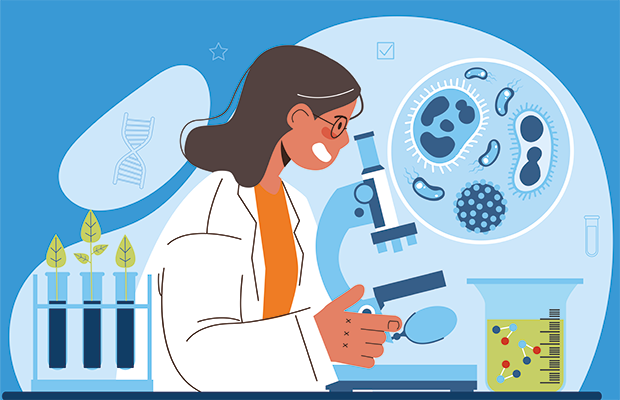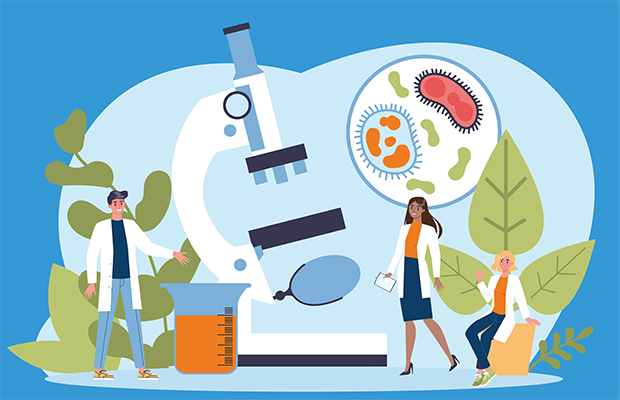OCR Biology F212 (Molecules, Biodiversity, Food and Health)- 21st May 2012
Scroll to see replies
Hi can anyone explain this spec point: 'Describe the structure and mode of B lymphocytes and T lymphocytes, including the significance of cell sigalling and the role of memory cells.
Much appreciated, do use this is gona come up???
Thanks in advanced
Much appreciated, do use this is gona come up???
Thanks in advanced
Original post by DonAlinor
Triglyceride
- has a glycerol bonded to three lipids through a condensation reaction forming an ester bond in which a three water molecules are released
-a polysaccharide can be converted into a disaccharide through hydrolysis in which a water molecule is used to break a glycosidic bond, catalyst required
-mRNA only forms one strand which I complimentary to the template dstrand but similar to the coding strand( uracil replaces thymine)
- MRNA only code for one gene to form a proteiN in the ribosomes where as DNA provides full instructions... Don't know the rest of the sentence lol
- has a glycerol bonded to three lipids through a condensation reaction forming an ester bond in which a three water molecules are released
-a polysaccharide can be converted into a disaccharide through hydrolysis in which a water molecule is used to break a glycosidic bond, catalyst required
-mRNA only forms one strand which I complimentary to the template dstrand but similar to the coding strand( uracil replaces thymine)
- MRNA only code for one gene to form a proteiN in the ribosomes where as DNA provides full instructions... Don't know the rest of the sentence lol

4/4
3/3
1/3 - Uracil instead of Thymine was right but mention deoxyribose/ribose, helical/non-helical, single stranded/double stranded
1/2 - Your mRNA part was right, just had to say the opposite for DNA, it has many genes to code for many proteins
Original post by pre-med-guy
How many ester bonds does a phospholipid molecule have?
2.
everyone should defo revise enzyme, dna, smoking as none of this come up in jan 2012
Original post by med123
Hi can anyone explain this spec point: 'Describe the structure and mode of B lymphocytes and T lymphocytes, including the significance of cell sigalling and the role of memory cells.
Much appreciated, do use this is gona come up???
Thanks in advanced
Much appreciated, do use this is gona come up???
Thanks in advanced
http://www.thestudentroom.co.uk/showthread.php?t=1965176&page=39&p=37634216&highlight=#post37634216
Original post by Amz1217
4/4
3/3
1/3 - Uracil instead of Thymine was right but mention deoxyribose/ribose, helical/non-helical, single stranded/double stranded
1/2 - Your mRNA part was right, just had to say the opposite for DNA, it has many genes to code for many proteins
3/3
1/3 - Uracil instead of Thymine was right but mention deoxyribose/ribose, helical/non-helical, single stranded/double stranded
1/2 - Your mRNA part was right, just had to say the opposite for DNA, it has many genes to code for many proteins
Explain the advantages and disadvantages of ex situ [6]
Original post by otrivine
why 1/3 i should get 2 marks and enzyme as well are needed mentions in the book
I was looking more at Glycosidic bond and water molecules inserted but if your book says enzyme then fair enough, don't remember my Bio book mentioning that...
Original post by Amz1217
I was looking more at Glycosidic bond and water molecules inserted but if your book says enzyme then fair enough, don't remember my Bio book mentioning that...
its the OCR text book
but anyways can i have more

Original post by DonAlinor
Explain the advantages and disadvantages of ex situ [6]
Advantage
they are in their own environment
- are able to breed more freely
- less suscptible to disease
disadvantage
-hunting
-tourism throwing litters which can reduce biodiveristy/gene pool
-competition of food between species
Original post by DonAlinor
Explain the advantages and disadvantages of ex situ [6]
Pros
- No risk of competition
- Health can be checked and maintained
- Good food supply
- Protection from poachers and predators
Cons
- Lose ability to integrate with wild animals
- Some animals cannot breed in captivity
Original post by otrivine
its the OCR text book
but anyways can i have more
but anyways can i have more

Ah, go ahead, 2/3
But makes sure you put down the glycosidic bonds and water molecules if it asks it in the exam
Original post by otrivine
Advantage
they are in their own environment
- are able to breed more freely
- less suscptible to disease
disadvantage
-hunting
-tourism throwing litters which can reduce biodiveristy/gene pool
-competition of food between species
they are in their own environment
- are able to breed more freely
- less suscptible to disease
disadvantage
-hunting
-tourism throwing litters which can reduce biodiveristy/gene pool
-competition of food between species
The question was on about EX-situ not IN-situ
is phagocytosis a primary or secondary response?
Original post by Amz1217
The question was on about EX-situ not IN-situ
yes this is when it happens outside the habitat
Original post by otrivine
Advantage
they are in their own environment
- are able to breed more freely
- less suscptible to disease
disadvantage
-hunting
-tourism throwing litters which can reduce biodiveristy/gene pool
-competition of food between species
they are in their own environment
- are able to breed more freely
- less suscptible to disease
disadvantage
-hunting
-tourism throwing litters which can reduce biodiveristy/gene pool
-competition of food between species
I think you mixed up in situ and ex situ though it would havE been right for the advantages of In situ

Original post by Amz1217
Pros
- No risk of competition
- Health can be checked and maintained
- Good food supply
- Protection from poachers and predators
Cons
- Lose ability to integrate with wild animals
- Some animals cannot breed in captivity
- No risk of competition
- Health can be checked and maintained
- Good food supply
- Protection from poachers and predators
Cons
- Lose ability to integrate with wild animals
- Some animals cannot breed in captivity
Spot on 6/6
Ask me onE
Original post by DonAlinor
I think you mixed up in situ and ex situ though it would havE been right for the advantages of In situ 

oh sorry did not read question my bad
Original post by volvicstar
is phagocytosis a primary or secondary response?
Primary response I believe, anything to do with memory cells is a secondary response
I was just reading about the conservation of species and how humans are affecting biodiversity , and i swear i am hating the human race right now. 

Original post by DonAlinor
Spot on 6/6
Ask me onE
Ask me onE
What are the 5 aims of the Rio Convention on Biodiversity? [5]
Why do I get a sneaky feeling they'll ask this? Lol
Quick Reply
Related discussions
- A-level Exam Discussions 2024
- A-level Biology Study Group 2023-2024
- GCSE Exam Discussions 2024
- A-level Biology Study Group 2022-2023
- my a-level journey 🧸♡🍪
- OCR A-Level Biology A Paper 2 (H420/02) - 14th June 2024 [Exam Chat]
- A Level Exam Discussions 2023
- OCR A A-Level Biology Unified Biology [21st June 2023] Exam Chat
- biology as 2022 paper 1 ocr
- GCSE Exam Discussions 2023
- Grade Growth Chronicles | From C's to A's (23-24)
- How to get A* in a-level biology
- Geography NEA
- I am looking at my GCSE grades from 2017
- I’m really stressed about my a level options :(
- OCR BIOLOGY PAPER 3 Predictions?
- AS/A Level Chemistry Study Group 2023/2024
- exams 2022
- Advanced Higher Biology Project Ideas
- OCR A Level Film Studies Paper 1 (H410/01) - 21st May 2024 [Exam Chat]
Latest
Trending
Last reply 5 hours ago
AQA GCSE Biology Paper 1 Triple Higher Tier 10th May 2024 [Exam Chat]Last reply 1 day ago
OCR A-Level Biology A Paper 1 (H420/01) - 5th June 2024 [Exam Chat]Last reply 1 day ago
Edexcel A-level Biology A (Salters-Nuffield) Paper 2 - 14th June 2024 [Exam Chat]Last reply 3 days ago
Edexcel GCSE Biology Paper 1 (Higher)(1B10/1H) - 10th May 2024 [Exam Chat]Last reply 6 days ago
AQA GCSE Biology Paper 1 (Higher Combined) 8464/1H - 10th May 2024 [Exam Chat]Last reply 1 week ago
Edexcel A-level Salter's-Nuffield Advanced Biology Papers 1, 2, 3 (9BN0 01-03)Last reply 2 weeks ago
Unofficial Mark scheme: AQA GCSE Biology Paper 1 Triple Higher Tier 16th May 2023Last reply 3 weeks ago
Edexcel A-level Biology A (Salters-Nuffield) Paper 3 - 19th June 2024 [Exam Chat]Last reply 1 month ago
OCR A-Level Biology A Paper 2 (H420/02) - 14th June 2024 [Exam Chat]Last reply 1 month ago
OCR A-Level Biology A Paper 3 (H420/03) - 19th June 2024 [Exam Chat]Last reply 3 months ago
AQA GCSE Biology Paper 2 (Higher Tier Combined) 8464/2H - 9th June 2023 [Exam Chat]Last reply 3 months ago
Unofficial Mark scheme: AQA GCSE Biology Higher Combined 8464/1H 16th May 2023Last reply 5 months ago
AQA GCSE Biology Paper 1 (Higher Combined) 8464/1H - 16th May 2023 [Exam Chat]Last reply 5 months ago
Edexcel GCSE Biology Paper 1 Higher Combined 1SC0 1BH - 16th May 2023 [Exam Chat]Trending
Last reply 5 hours ago
AQA GCSE Biology Paper 1 Triple Higher Tier 10th May 2024 [Exam Chat]Last reply 1 day ago
OCR A-Level Biology A Paper 1 (H420/01) - 5th June 2024 [Exam Chat]Last reply 1 day ago
Edexcel A-level Biology A (Salters-Nuffield) Paper 2 - 14th June 2024 [Exam Chat]Last reply 3 days ago
Edexcel GCSE Biology Paper 1 (Higher)(1B10/1H) - 10th May 2024 [Exam Chat]Last reply 6 days ago
AQA GCSE Biology Paper 1 (Higher Combined) 8464/1H - 10th May 2024 [Exam Chat]Last reply 1 week ago
Edexcel A-level Salter's-Nuffield Advanced Biology Papers 1, 2, 3 (9BN0 01-03)Last reply 2 weeks ago
Unofficial Mark scheme: AQA GCSE Biology Paper 1 Triple Higher Tier 16th May 2023Last reply 3 weeks ago
Edexcel A-level Biology A (Salters-Nuffield) Paper 3 - 19th June 2024 [Exam Chat]Last reply 1 month ago
OCR A-Level Biology A Paper 2 (H420/02) - 14th June 2024 [Exam Chat]Last reply 1 month ago
OCR A-Level Biology A Paper 3 (H420/03) - 19th June 2024 [Exam Chat]Last reply 3 months ago
AQA GCSE Biology Paper 2 (Higher Tier Combined) 8464/2H - 9th June 2023 [Exam Chat]Last reply 3 months ago
Unofficial Mark scheme: AQA GCSE Biology Higher Combined 8464/1H 16th May 2023Last reply 5 months ago
AQA GCSE Biology Paper 1 (Higher Combined) 8464/1H - 16th May 2023 [Exam Chat]Last reply 5 months ago
Edexcel GCSE Biology Paper 1 Higher Combined 1SC0 1BH - 16th May 2023 [Exam Chat]



